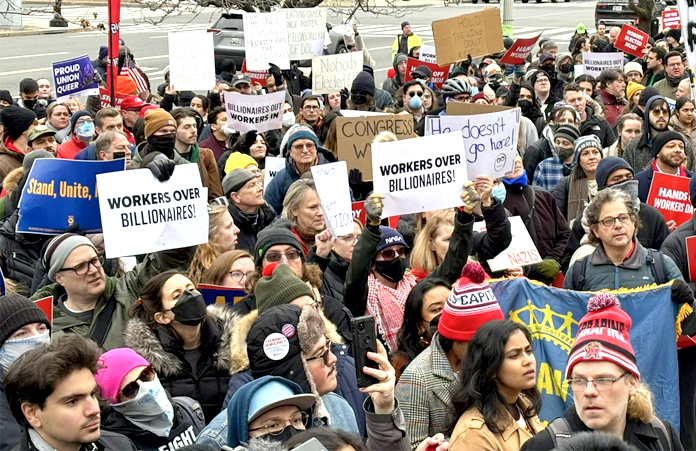US PRESIDENT Donald Trump is reportedly putting pressure on regulators to allow government bonds, known as Treasuries, be exempt from risk calculations.
Economists have warned this would trigger another banking crash worse than that of 2008.
In the wake of 2008, American regulators made the biggest US banks put aside larger protected funds above all other capital cushions.
It meant that while most banks in the world hold extra capital worth three per cent of their overall assets, the biggest US banks have been holding five percent.
Regulations stipulated the more government bonds a bank owns, it must put aside more capital to back this debt in case it fails.
Meanwhile, highly risky junk bonds and considered safe Treasuries are currently treated the same in rules known as ‘supplementary leverage ratios’ (SLR).
America’s biggest banks have complained this stops them from buying more safe haven Treasury bonds during times of stress as they come at too high a price.
The giant JP Morgan’s chief executive, Jamie Dimon has complained: ‘These rules effectively discourage banks from acting as intermediaries in the financial markets – and this would be painful at precisely the wrong time – when markets get more volatile.’
US Treasury Secretary Scott Bessant is also reportedly pushing for change, and has claimed adjusting the rules could drive down US borrowing costs as the world’s biggest capitalist economy has $36.7tn in government debt.
Former IMF chief economist Ken Rigoff said: ‘It is very hard to give a clear rationale for the SLR, which is essentially an extremely crude way to stop banks over-leveraging and has led to all kinds of distortions in the market because global banks can no longer perform simple arbitrage functions as they used to do.’
The proposed changes are expected to free up an extra $5.5tn on bank balance sheets available for investment.
But the planned move has given huge concern to those who lived through the 2008 crash.
Shiela Blair, former head of the Federal Deposit Insurance Corporation (FDIC), which insures savers against losses in the event of a bank collapse, has warned: ‘Such a huge reduction will increase the risk of a bank failure, exposing the economy to credit disruptions and exposing the FDIC and banking system to substantial losses.’
